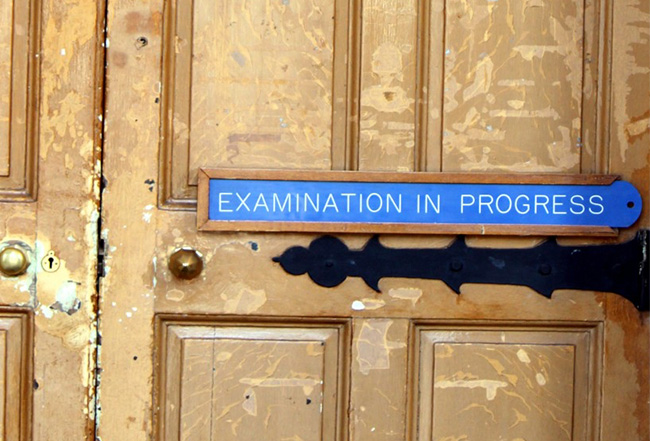The number of exam sittings in Trinity increased by nearly 10 per cent – from 66,635 to 72,209 – over the last two years, despite a College strategy to “reduce the emphasis on summative examinations” as part of the Trinity Education Project (TEP), The University Times has learned.
Figures presented to Trinity’s Undergraduate Studies Committee in November, seen by The University Times, showed an 8.4 per cent increase between 2017/18 and 2018/19, as well as a 6.2 per cent increase in December exam sittings between this year and last.
The figures are likely to raise questions about why the number of exam sittings has increased despite the ongoing implementation of TEP – a system that “advocates fewer, more meaningful assessments across the academic curriculum”.
In an interview with The University Times this week, Vice-Provost Jurgen Barkhoff referenced a number of changes Trinity has implemented in recent years as reasons for the increase in exam sittings.
Barkhoff said the increase “reflects in part the increased flexibility and optionality being provided to students, and the change from an annual exam to exams at the end of each semester”.
As part of TEP, all 15 and many 10-credit modules have been split into five-credit modules, replacing in many cases a single end-of-year exam with exams in both semesters.
Speaking about the changes, Barkhoff said the increase is “in part an effect of semesterisation. I know we have the option of examining a whole year programme at the end in one sitting, but actually in many schools and many programmes, we believe that that was in the interests of the students and what the students wanted”.
The creation of new courses – such as the restructuring of general science into four separate courses, and the new dual-degree programmes with Columbia University – also resulted in more modules, causing an increase in exam sittings, Barkhoff said.
He added that “shifting the emphasis away from summative examinations is part of a culture change, which will need some time to embed”.
Barkhoff said that this year, the average number of exam sittings per student was 6.3, up from 5.5 per student on average in 2017/18.
One of the key aims of TEP is a concerted move away from an emphasis on exams at the end of the year through the introduction of an assessment period before Christmas and a reconfiguration of how schools deliver their curriculums.
This, College said, would involve using more continuous assessment and project work as alternatives to traditional exams.
In September 2018, The University Times reported that Trinity would hold 11 per cent fewer exams in 2018/19 than in 2016/17.
This week, Barkhoff said that the College’s assessment mapping tool – which will be rolled out next year – and the Student Partnership Agreement will be used to examine and alter how College assesses students into the future.
“As the new curriculum rolls out across subsequent years”, he said, “we would expect the number – or at least the duration – but also the number of final examinations that each student will sit will decrease”.
“We are determined to do that, and I am confident that we will be able to reverse the trend, but that is gradual work”, he said.
Last December, this newspaper reported that the convergence of essay deadlines with College’s first-ever set of Christmas exams was causing “massive stress” for students.
At the time, Chris Morash, then the College’s vice-provost, told The University Times in an email statement that one “of the major pieces of work that is being done as part of the Trinity Education Project has been to map assessment, so that there is both a greater diversity of assessment, and there is an overview of assessment at a programme level (which, of course, is also how students see things – holistically, not module by module)”.
“More diversity of assessment does not mean more assessment”, he wrote. “Quite the opposite. It should mean that increasingly assessment across a range of modules is spread more evenly over the course of an entire academic year, rather than all being piled into a single exam period, when all other forms of student life grind to a halt.”







